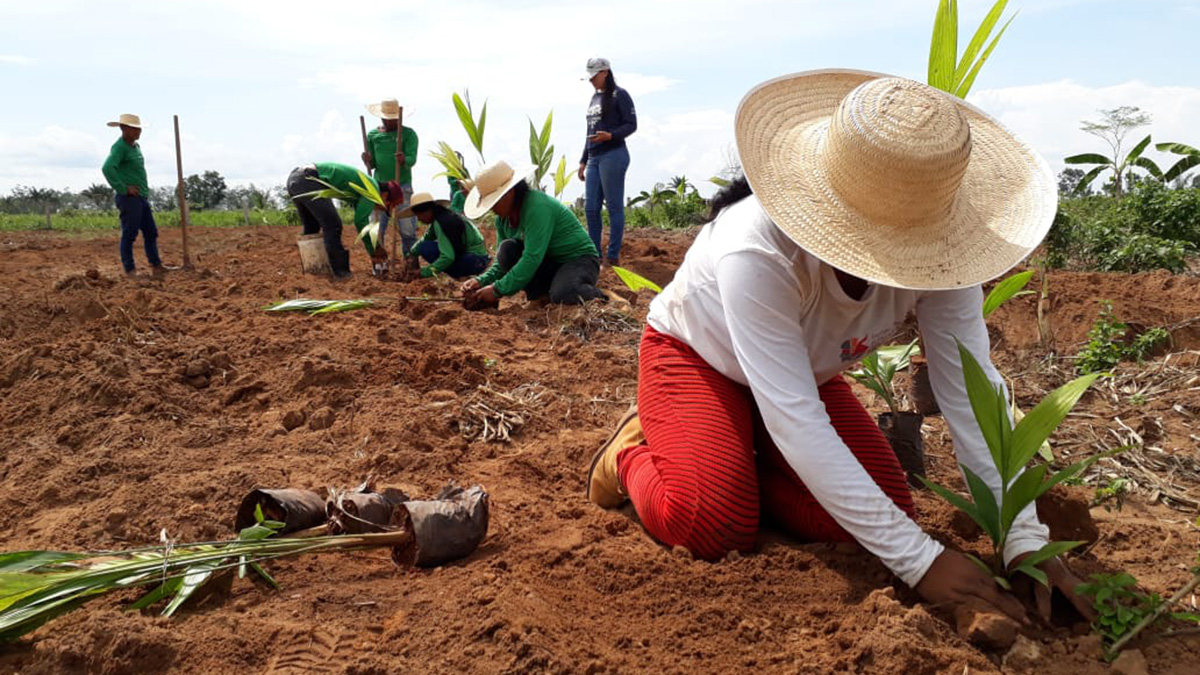
A translation of this article was made possible by a partnership with Planeteando. Una traducción de este artículo fue posible gracias a una asociación con Planeteando.
In the Amazon, Indigenous Peoples used ancestral knowledge to relate to the environment long before Europeans started colonizing South America. Today, environmental scientists are looking more and more at the intersection of Western and Traditional Knowledge for conservation across the Amazon and beyond.
This has been a key discussion at the 26th United Nations Climate Change Conference of the Parties (COP26) in Glasgow, Scotland, where the world is debating how to avoid a climate catastrophe. The importance of Indigenous and Local Knowledge (ILK) will be highlighted on 12 November at COP26, as the Science Panel for the Amazon launches its first report and dedicates one chapter of the hefty volume to ILK-based strategies and solutions.
“Local peoples know a lot about ecosystem dynamics and are attentive to details that we as [outside] researchers might overlook at times.”
“Local peoples know a lot about ecosystem dynamics and are attentive to details that we as [outside] researchers might overlook at times,” said Carolina Doria, a biologist at the Federal University of Rondônia in Brazil and a member of the Science Panel for the Amazon. “Because of that, any attempt to impose top-down approaches to conservation can be counterproductive. The best [methodology] is to listen to the communities and find common ground for plausible actions from different perspectives,” she added.
Fishing for Solutions
A number of existing projects translate these different perspectives across the Amazon region.
One of them is Ictio, a mobile application that compiles observations of fish caught in the Amazon basin. It is a crowdsourced science project influenced by the way the Cornell Lab of Ornithology uses apps for tracking and identifying birds. Doria explained that the Ictio app has special relevance for communities affected by dams built in the basin, as these constructions alter not only the volume of water in nearby rivers but also the dynamics of fish reproduction and their availability for consumption.
“Here in Rondônia we feel the brunt of hydropower dams. Concession holders collect environmental impact data, but fishermen have no access to [them]. As local communities record changes in fish availability and variety, they have more autonomy to argue against these impacts at the same time that we, as researchers, can understand changes in fish stocks,” Doria said.
Originally put together by scientists and fisherfolk of the Madeira River basin, the Ictio app has now gathered more than 38,000 observations across the Amazon.
Seeds for Growth
Many projects incorporating ILK and Western science focus on reforestation. Since 2008, Guaporé Ecological Action (Ecoporé), a nonprofit organization in Rondônia, has planted more than 4 million tree seedlings across about 1,200 hectares—an area as big as London’s Heathrow Airport.
“This work was only made possible by the partnership with local Indigenous, quilombola [descendants of enslaved Africans who fought colonial rule in Brazil], and riverine communities and associations,” said Marcelo Ferronato, programs coordinator at Ecoporé. Local communities have restored vegetation and helped expand forest areas over eroded land with low productivity. Such activity improves farming yields and preserves a traditional way of life, he explained.
“On many occasions [Indigenous] families ask for seeds of species we don’t know, and we learn from them about how to grow these plants.”
The choice of plant species is not arbitrary: Ecoporé technicians and local communities discussed which species fit their needs and target locations best. “We’re currently working with 350 Indigenous families and over 40 different species ‘mixes,’ or productive arrangements, according to their desires and needs. We learn a lot because on many occasions these families ask for seeds of species we don’t know, and we learn from them about how to grow these plants,” Ferronato said.
This experience has given Ecoporé a way into another project, Seed Network of the Amazonian Bioeconomy, which focuses on strengthening local economies by boosting the collection and production of high-quality Amazonian plant seeds.
These seeds have high potential market value. Brazilian law allows logging for economic activities on one fifth of the total area of private lands in the Amazon region—any percentage higher than that is illegal, and landowners are required to restore such vegetation. Seeds “can be sold especially to farmers and organizations willing to comply with the law,” Ferronato said.
Local communities and technicians trade knowledge about different seeds and their care and uses, and these communities receive training on how to sell their seeds and turn this activity into a small business.
Changing a Culture
Such businesses still face significant challenges, said Indigenous leader Maria Leonice Tupari. Tupari coordinates the Association of Female Indigenous Warriors of Rondônia (AGIR), an organization with members from 56 groups of Indigenous Peoples in Rondônia. “Logging and fires have depleted our seeds in some locations, and some native trees were vanishing with that. We’re collaborating with Ecoporé…to reverse this trend,” she said.
As well as serving as the raw material for restoring degraded areas, seeds are also used in the making of jewelry, a new source of income for Indigenous women in eight territories within AGIR. The women recently established an online store, Tecê-AGIR. “We sell all over Brazil, but the bulk of our sales go to clients in Rio de Janeiro and São Paulo,” Tupari said.
“Nowadays we [Indigenous Peoples] have many of our young studying, going to university, showing that Western knowledge draws a lot from our traditional wisdom.”
Tupari said ILK has been more valued in the past few decades in the scientific community, in part because of a greater presence of Indigenous scientists. “Nowadays we have many of our young studying, going to university, showing that Western knowledge draws a lot from our traditional wisdom,” she said.
At the same time, Tupari feels that prejudice against Indigenous Peoples has increased throughout Brazilian society, especially during the current government of Jair Bolsonaro, who has always antagonized traditional peoples and conservation efforts. In 2019, Tupari was one of eight Indigenous leaders who authored an open letter calling attention to how the rights of Indigenous Peoples in Brazil are being violated and threatened. “Reports show that at least 14 Indigenous lands are currently being invaded by miners, land grabbers, loggers and hunters,” the letter read.
“Many people think we [Indigenous Peoples] depend on the government to eat and live, and it’s not true: We work a lot to grant our survival,” Tupari said.
—Meghie Rodrigues (@meghier), Science Writer
This story is a part of Covering Climate Now’s week of coverage focused on “Code Red: The World’s Climate Summit.” Covering Climate Now is a global journalism collaboration committed to strengthening coverage of the climate story.

